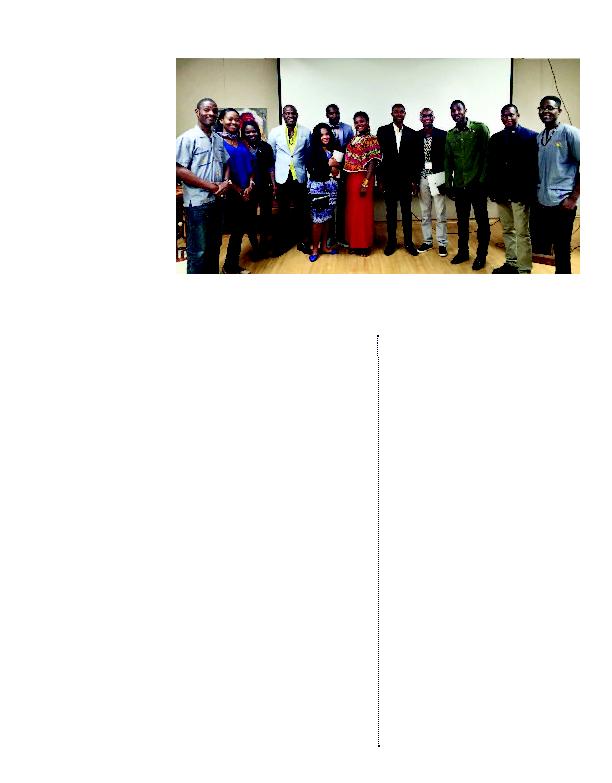
they going to be able to move forward by es-
tablishing themselves in business, and things
like that."
at Bona's, finding cooperation at every turn.
tendees, but faced few other expenses.
and other instructors volunteered their time
to teach special non-credit classes; Aramark,
the university's food service provider, donated
meals; other program expenses were covered
by donations, BonaResponds, the School of
Business and the school's Pacioli Scholars Pro-
gram, which helps fund student leadership
opportunities.
university come together and work together."
can experience that is St. Bonaventure while
equipping them with knowledge they could
take back home and share with others.
low, presented a lesson on free markets,
using props he picked up at a local dollar
store.
teach anybody, from an 8-year-old to some-
derstanding of what this is and why it's
important," he said. In that sense, Bona's and
Beyond is a catalyst meant to inspire aha mo-
ments.
look what I could do. There's a world of possi-
bilities and I could learn these things if some-
one got me started.'"
management, chemistry, political science,
wind and solar energy systems, composting
toilets and more, along with demonstrations
of simple, inexpensive technologies the
Haitians could take back and put to use im-
mediately.
tle in terms of equipment -- essentially a
bucket and some special hoses," said Fischer.
"You could see the light bulbs going off, and
not just in our Haitian visitors. A lot of us,
too, were learning about some different solu-
tions that are not at all that complicated, but
just require someone to really have passion
and a willingness to get this technology into
people's hands."
Olean Public Library.